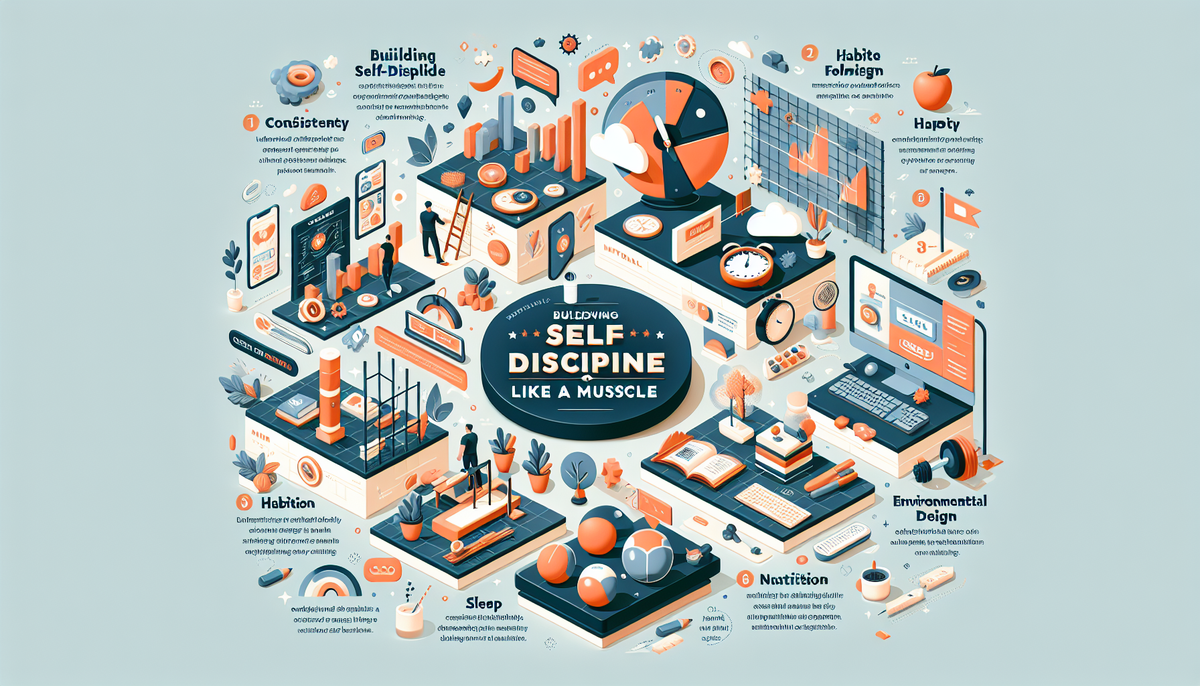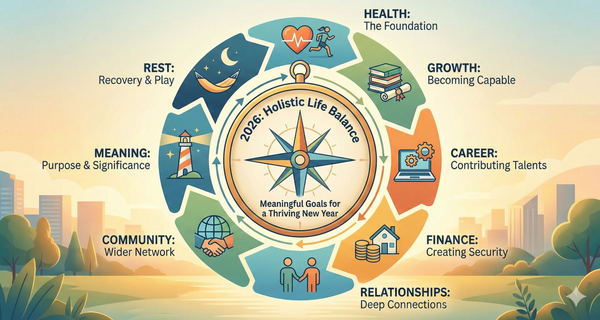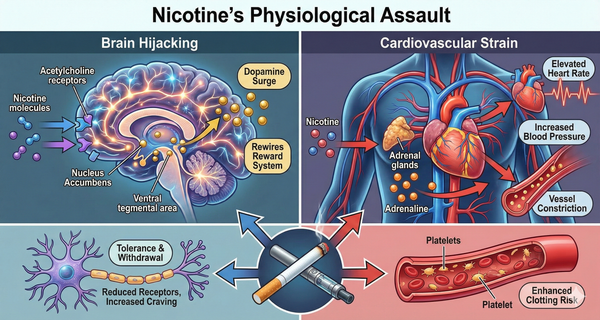Building Self-Discipline Like a Muscle

Understanding Self-Discipline: The Bedrock of Success
In the world of self-growth, we often chase fleeting motivation to achieve our goals. We wait for a "good" day or a jolt of inspiration. But what if the key to long-term achievement isn’t about waiting for a feeling, but about building a skill? Self-discipline is that skill. It’s the ability to act regardless of your emotional state, and the good news is that it’s not an innate trait you either have or don’t. It’s a muscle. The more you train it with consistency, the stronger it gets, leading to profound mental toughness and the ability to conquer your most ambitious goals.
Self-Discipline vs. Motivation: A Crucial Distinction
Motivation is a powerful but unreliable ally. It’s the spark that gets you started—buying the gym membership, outlining the business plan, or purchasing a healthy cookbook. Discipline, however, is what keeps you going. It’s the quiet determination to show up on a cold morning when the warmth of your bed is calling. It’s the consistency to cook a healthy meal after a draining day at work. While motivation is an emotion, self-discipline is a system. Relying solely on motivation is like trying to power a city with a lightning strike; discipline is the power plant, providing steady, reliable energy day in and day out.
The "Discipline Muscle": How Repetition Builds Mental Toughness
Thinking of self-discipline as a muscle is the most effective way to cultivate it. Every time you choose a harder, better path—like focusing on a task instead of browsing social media—you complete a "rep." Each rep, no matter how small, strengthens this mental muscle. Initially, it feels difficult and draining. But with consistent practice, what was once a monumental effort becomes second nature. This progressive overload builds formidable mental toughness, enabling you to handle greater challenges and resist stronger temptations over time. The core principle is simple: consistency is the key to growth.
Your Training Regimen: Actionable Strategies for Building Self-Discipline
Building self-discipline requires a structured plan, much like a workout regimen. It’s about implementing practical strategies that foster consistency and resilience. By focusing on actionable steps, you can move from wishing for discipline to actively practicing it daily. These techniques are designed to create momentum and make the process of building mental toughness systematic and achievable.
Start with Micro-Habits: The Power of Small, Consistent Actions
The biggest mistake people make is trying to change everything at once. This approach leads to burnout and a sense of failure. Instead, start with an action so small it’s almost impossible not to do. Want to build a reading habit? Start with one page a day. Want to start meditating? Begin with one minute. These micro-habits are the "warm-up sets" for your discipline muscle. They build consistency and create a foundation of success that you can gradually build upon, reinforcing the identity of someone who follows through.
Embrace Discomfort: Your Gateway to Growth
The moment you feel the urge to quit or procrastinate is the exact moment you are in the gym for your mind. True growth doesn't happen in your comfort zone. By intentionally embracing this mild discomfort, you are actively strengthening your mental toughness. The goal isn't to eliminate the feeling of resistance but to learn to act in spite of it. Each time you do, you send a powerful signal to your brain that you are in control, not your impulses. This consistent practice expands your capacity for work and your resilience against challenges.
The Law of Consistency: Show Up Every Day
Consistency is more important than intensity. Working out for 15 minutes every day is infinitely more effective for building long-term discipline than one heroic two-hour session every month. Consistency creates a powerful compound effect. It automates your actions, reducing the mental energy required to start. Committing to consistency, especially on days you don’t feel like it, forges a deep-seated mental toughness that becomes the bedrock of your character. The goal is not perfection, but simply to not break the chain of daily action.
Design Your Environment for Success
Willpower is a finite resource. Instead of constantly fighting temptation, create an environment where the disciplined choice is the easiest choice. If you want to stop eating junk food, don't keep it in the house. If you want to focus on your work, put your phone in another room and block distracting websites. By reducing the friction for good habits and increasing it for bad ones, you conserve your mental energy for the tasks that truly matter. This is not a sign of weakness; it's a hallmark of strategic self-discipline.
Fueling Your Progress: The Lifestyle Factors Behind Mental Toughness
Your ability to practice self-discipline isn't determined by grit alone. It is profoundly influenced by your physical and mental well-being. Just as a performance athlete needs the right fuel and recovery, your "discipline muscle" requires proper care to function optimally. Neglecting these foundational elements is like trying to build a skyscraper on sand; true mental toughness is holistic, integrating mind and body into a resilient, high-performance system.
The Role of Sleep and Nutrition in Willpower
Scientific studies have repeatedly shown that a lack of quality sleep significantly depletes the prefrontal cortex—the area of your brain responsible for executive functions like self-control. When you are sleep-deprived, your brain is more susceptible to impulsive behavior and emotional reactivity. Similarly, your brain relies on a steady supply of glucose for fuel. Diets high in processed sugars cause energy spikes and crashes, wrecking your ability to maintain focus and discipline. Prioritizing 7-9 hours of quality sleep and a balanced diet of whole foods is not supplementary to your goals; it is the essential fuel for mental toughness and consistency.
Mindfulness and Meditation: Sharpening Your Focus
Self-discipline begins with self-awareness. You cannot manage your impulses if you don't notice them as they arise. Mindfulness meditation is the practice of observing your thoughts and feelings without judgment. A consistent meditation practice—even just 5-10 minutes a day—trains your ability to focus and creates a crucial gap between impulse and action. This pause is where you reclaim your power of choice. By regularly training your attention, you develop the mental clarity to stay on task, resist distractions, and align your actions with your long-term goals, forming the very essence of mental toughness.
Conclusion: Start Your First Rep Today
Building self-discipline is a journey of a thousand small steps, not a single giant leap. It’s about choosing to do the small, hard things with relentless consistency. By understanding that self-discipline is a muscle, starting with micro-habits, embracing discomfort, and fueling your body and mind correctly, you create an unstoppable system for growth. The path to immense mental toughness and achieving your loftiest goals begins with a single, conscious choice. Don’t wait for motivation. Pick one small action from this guide and do it now. That is your first rep. Tomorrow, you will do another.




